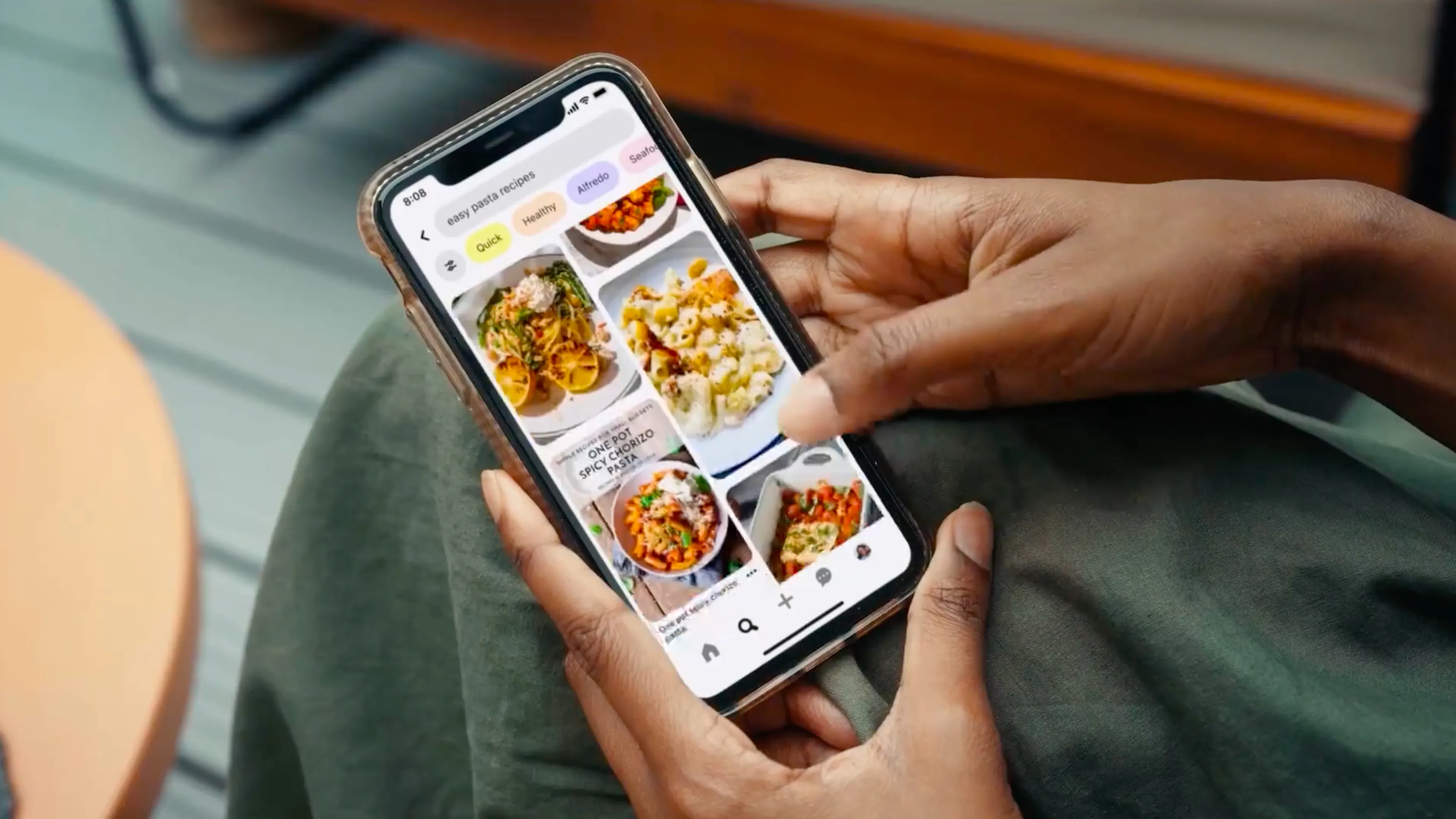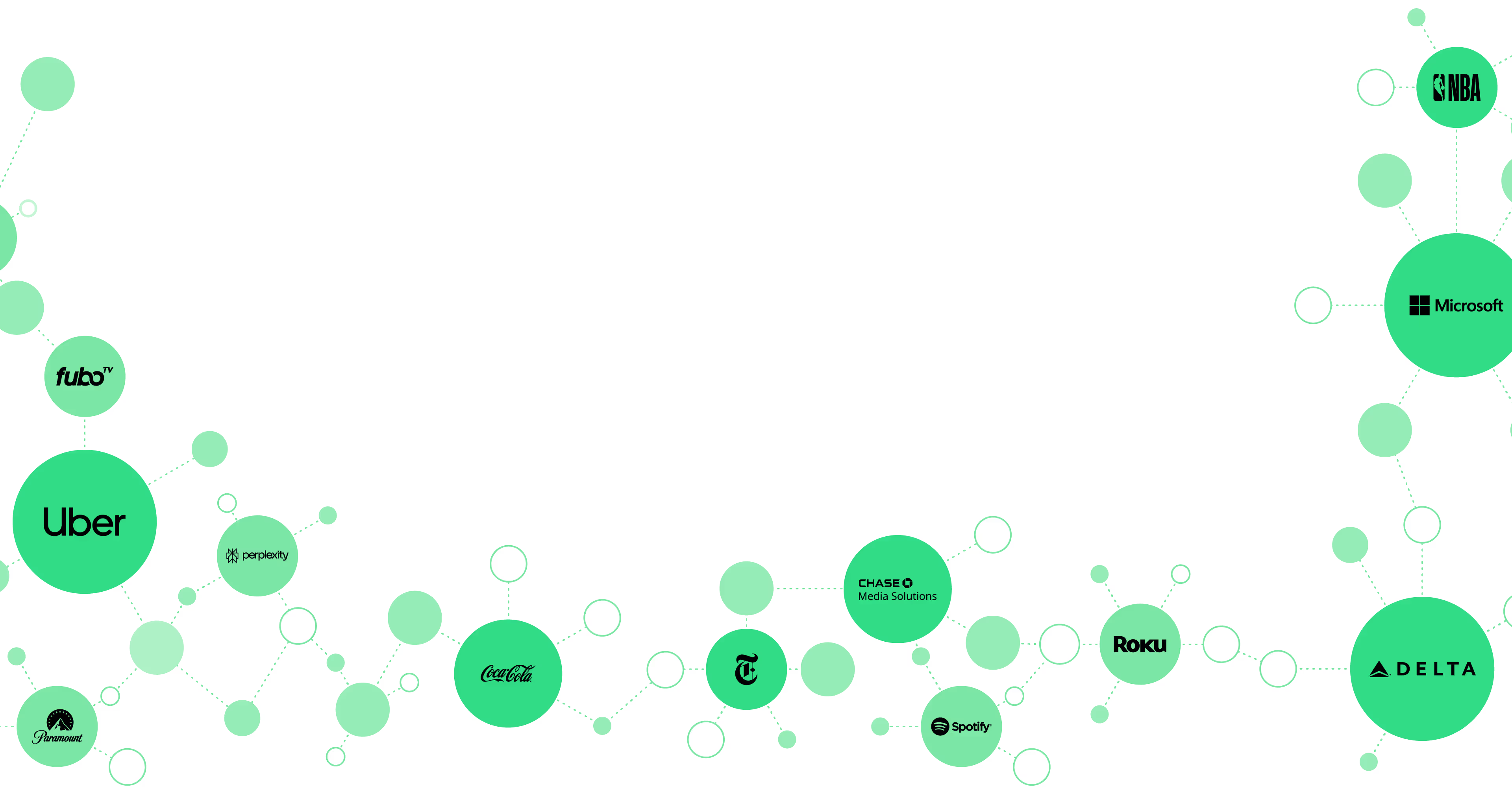Reach customers anywhere. Measure impact everywhere.
Turn expanding customer signals into fuel for AI-powered marketing and advertising – made measurable and scalable with the world's most powerful data collaboration network.
Why 500+ global partners trust LiveRamp
Plug into the world’s most powerful data collaboration network
Smarter marketing demands shared intelligence. Connect and collaborate across a universe of signals to drive insights and impact no one can achieve alone.

Delight consumers everywhere it matters
Reach consumers across 92% of the advertising ecosystem, including Disney, Hulu, Pinterest, Snap, Spotify, Perplexity, Netflix, and TikTok – no other platform comes close.
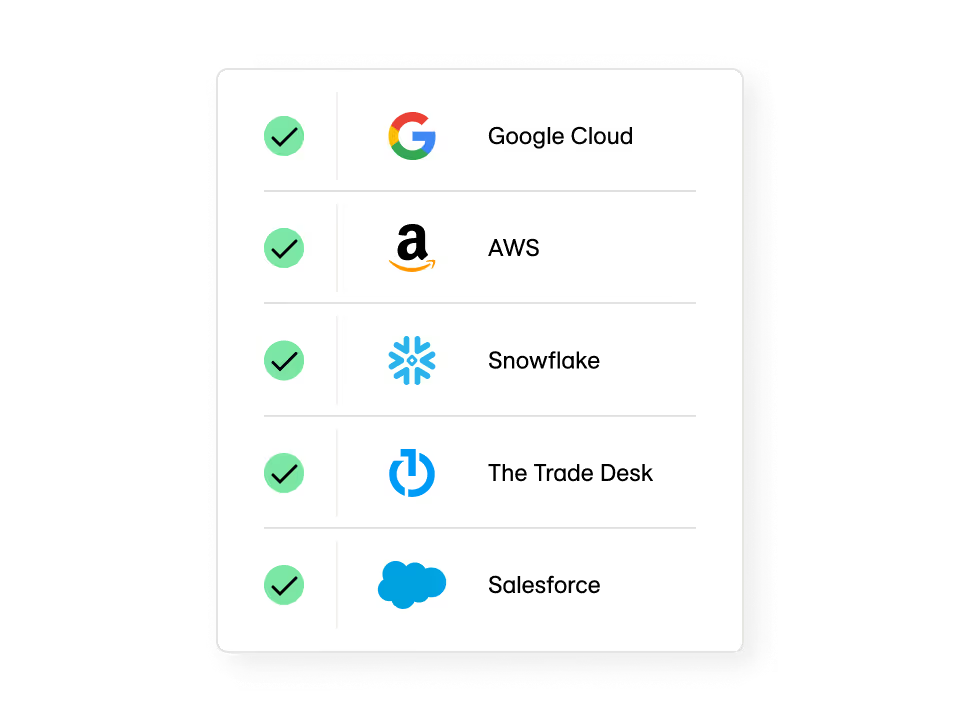
Work with your tools, your way
Connect your most valuable data and signals across identifiers, platforms, clouds, and agents – that’s the freedom of full interoperability.
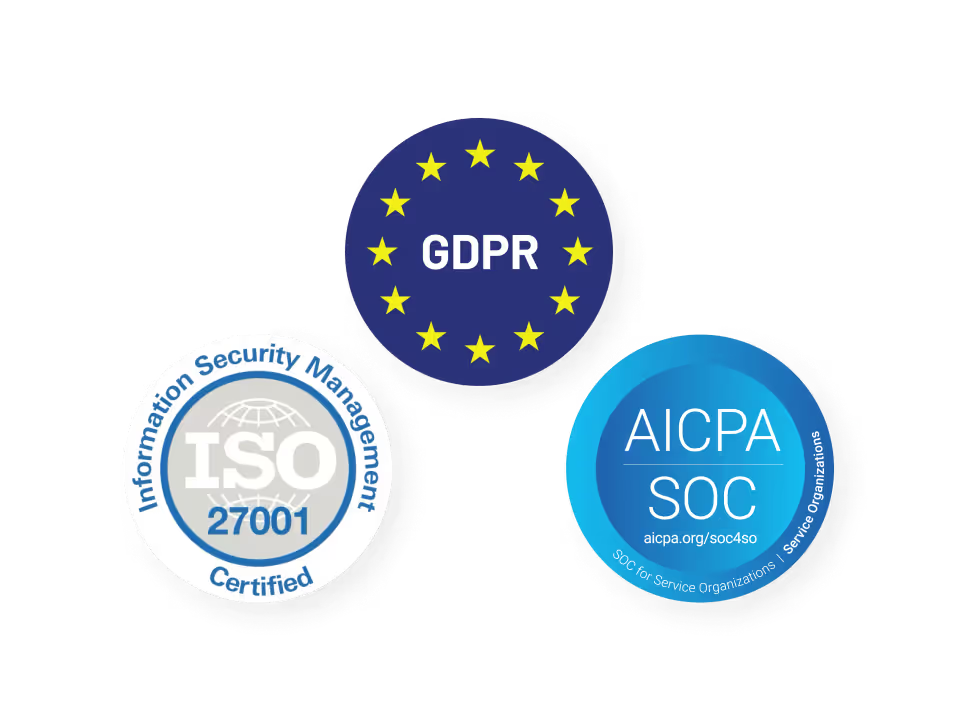
Protect consumer trust
Use data responsibly at scale. Our strict platform neutrality and advanced controls protect your data and consumer trust, so you can collaborate with confidence.
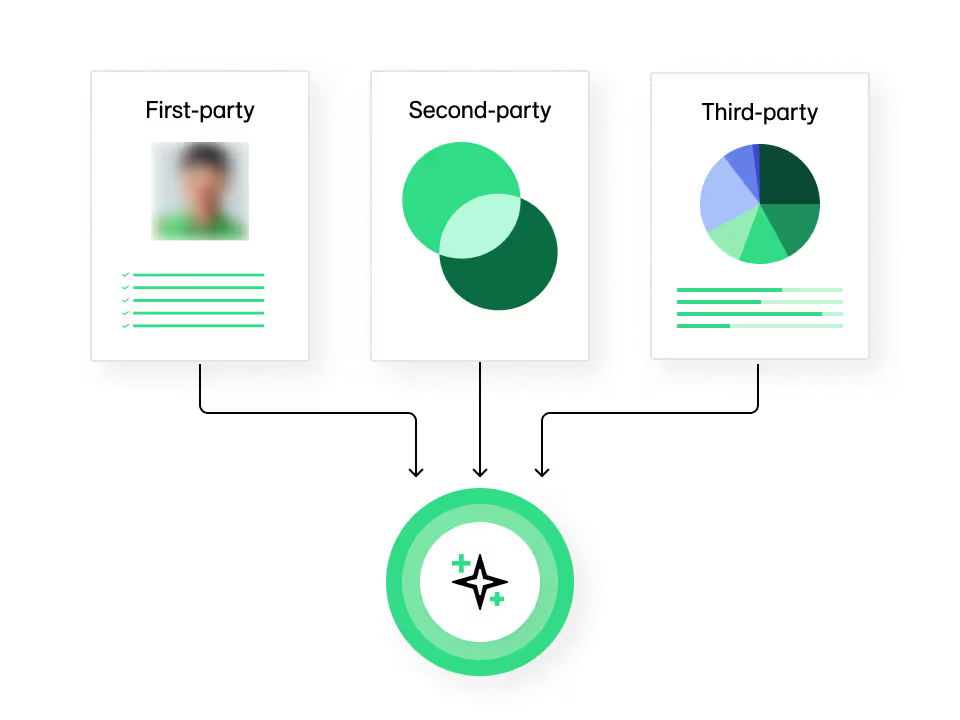
Help AI agents act smarter
Power more intelligent AI with robust first, second, and third-party signals you can only access through the most expansive data collaboration network.
Your peers, our customers
Proven by leaders,
powered by LiveRamp
The world’s top brands, publishers, and platforms use LiveRamp to drive measurable growth.
How liveramp can help you
Explore intelligent solutions for your most ambitious marketing and business goals
Deliver and measure marketing performance everywhere it matters. What will you achieve with the LiveRamp data collaboration network?
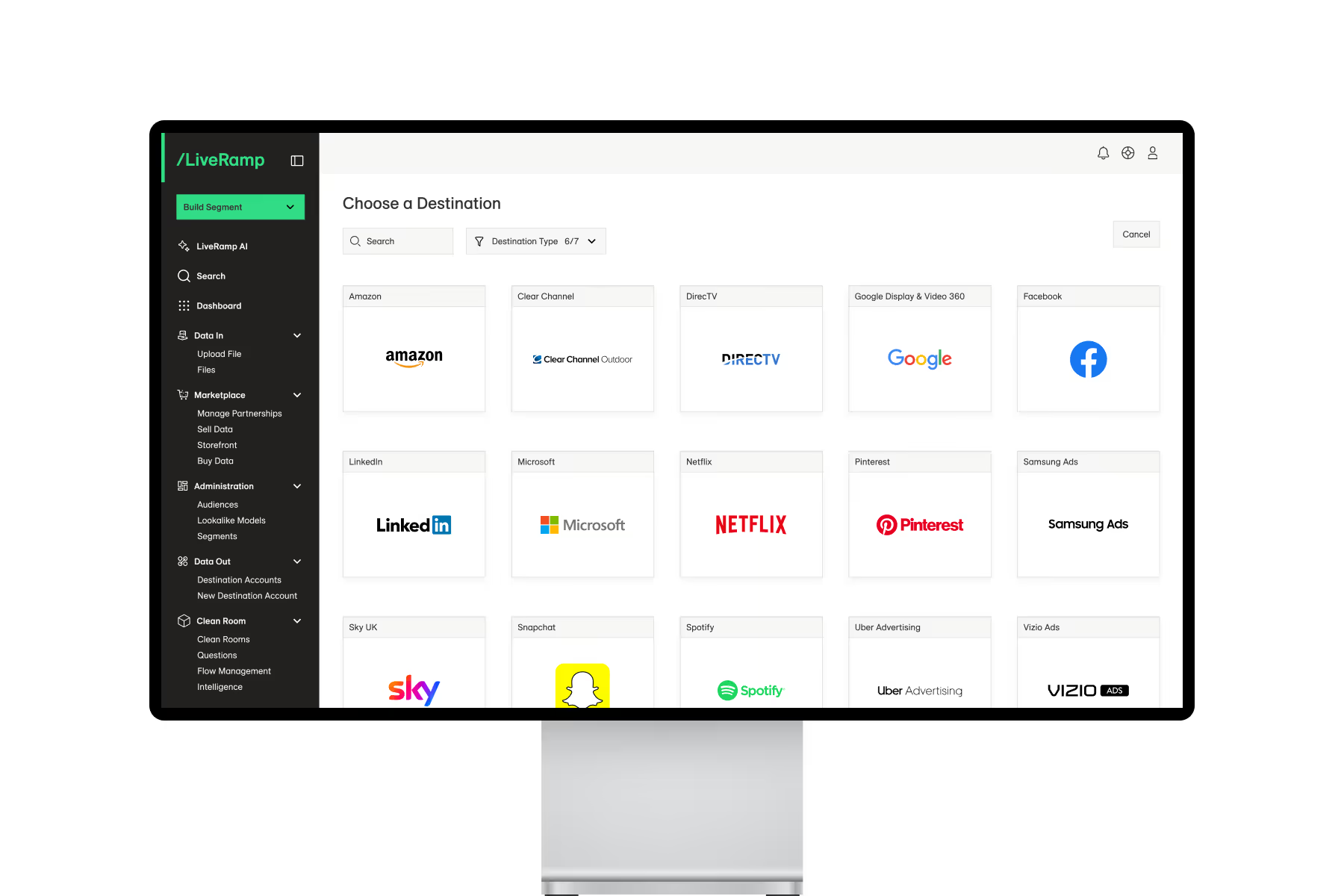
Reach your most valuable customers wherever they spend time, all from one trusted platform.

Gain a full view of your customers by filling first-party data gaps with trusted sources.
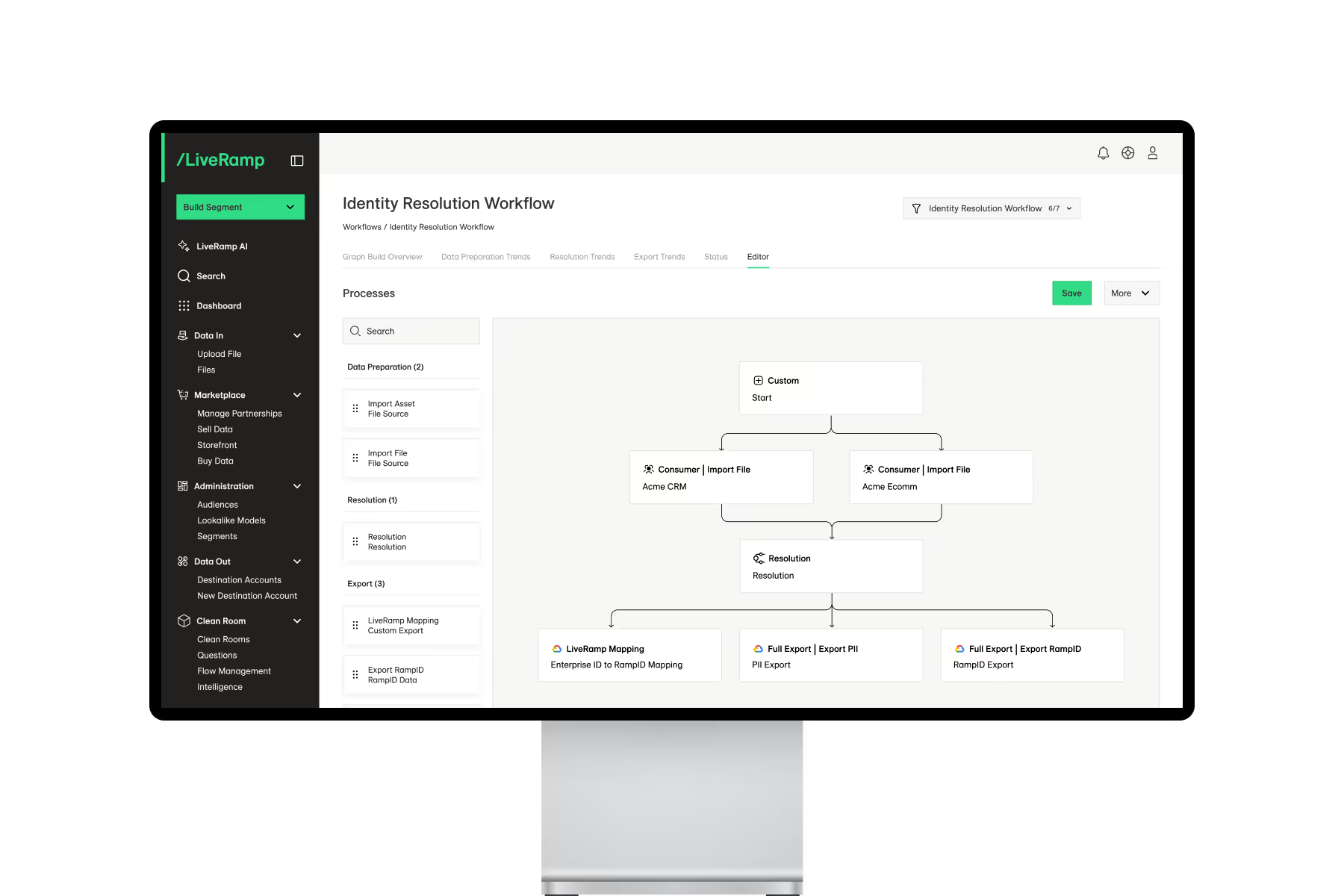
Reach your most valuable customers wherever they spend time, all from one trusted platform.
How liveramp can help you
Industry leadership and awards
Consistently recognized by partners and analysts you trust









